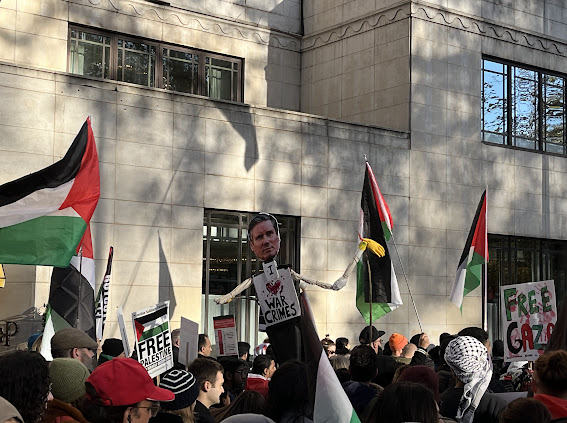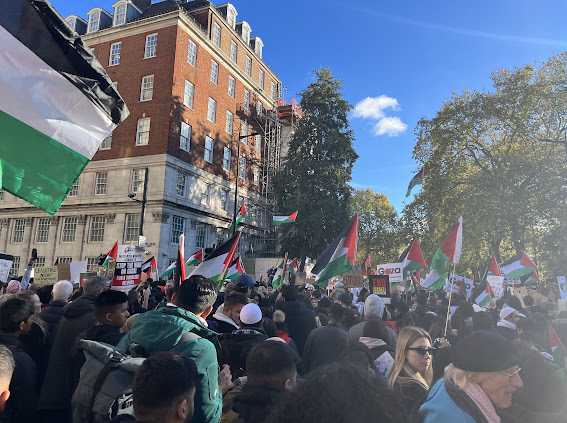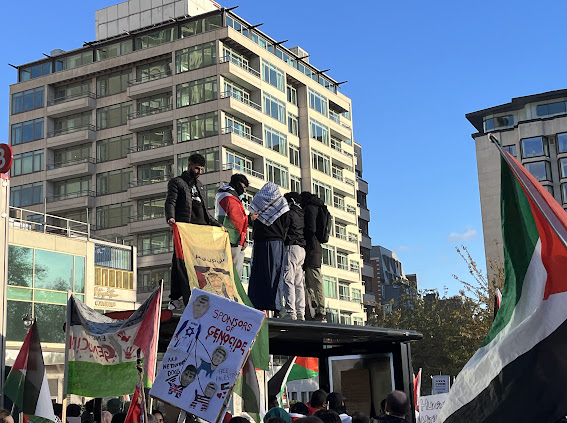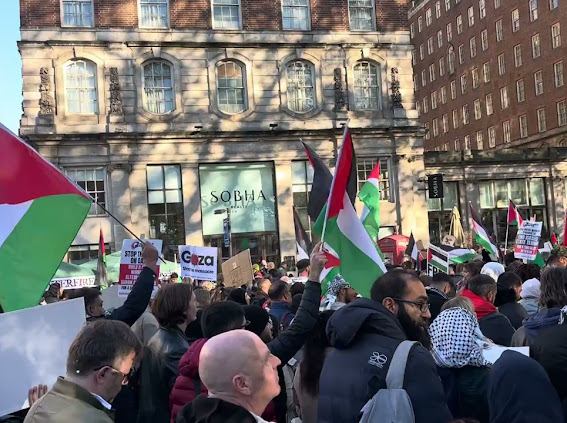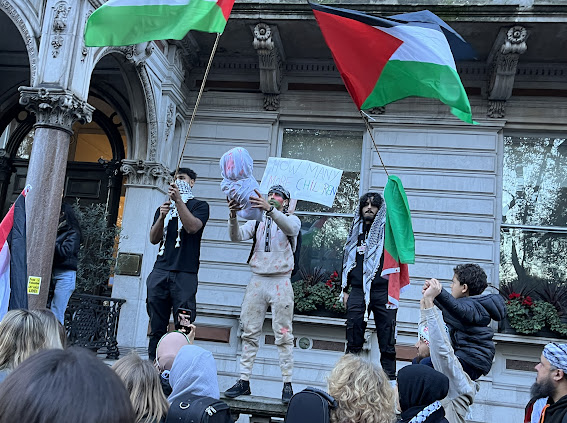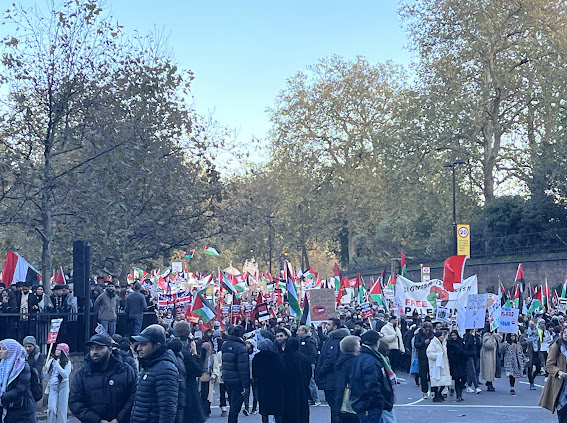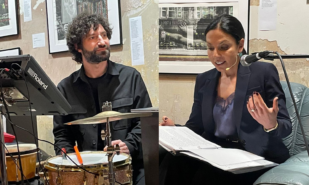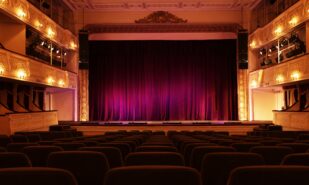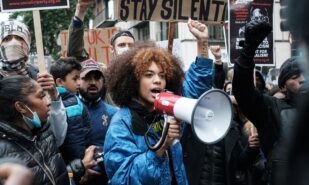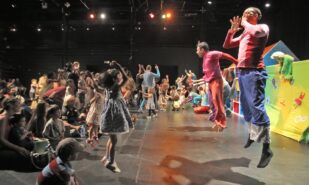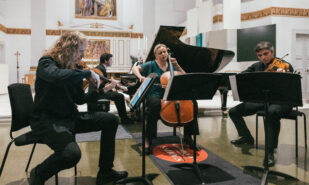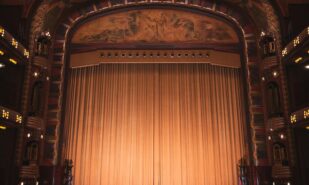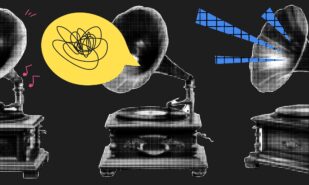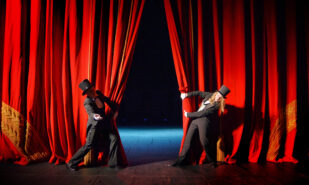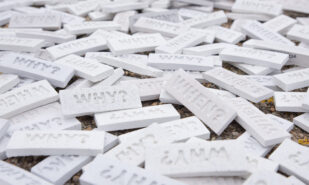300,000 people marching for Palestine: “this is not the world I want to live in!”
Last Saturday’s protest proved to be the largest pro-Palestinian demonstration in British history. According to the official data from the police, about 300,000 people took part in protests in central London. Here are some impressions of the proceedings from LC.
Protesters gathered on Park Lane near Marble Arch by 12 noon and marched through Grosvenor Place, Victoria, and Vauxhall to the US Embassy. The demonstrators used red, green, and white colours associated with the Palestinian state in flags, posters and spouts of artificial tricolour smoke. There were people of different origins, races, and nationalities in the procession, many of them coming with families and children. Chants led by people with loudspeakers could be heard everywhere: “From the river to the sea, Palestine will be free,” “Ceasefire now!”
At the US Embassy, speakers walked onto the stage and just after 3pm a two-minute silence was observed – thousands of protesters, from Battersea Park to Vauxhall station, were completely still. During these two minutes the photographs of civilians killed over the past five weeks in the Gaza Strip were projected. Around 6 p.m. the crowd slowly began to disperse.
Overall, there were not any major disruptions. However, Tommy Robinson, the former leader of the far-right and anti-Islamic English Defence League (EDL), was reportedto have led a riot in Chinatown immediately after the traditional two-minute silence at 11am on Armistice Day. Some clashes between the police and the far-right nationalists were observed in Westminster. The latter also attempted to attack the pro-Palestinian protesters at about 1:15 p.m. near Victoria Station. 82 of those who tried to disrupt the march were arrested for “breach of peace” and another ten for other offenses including “assault and weapon possession,” police said. In total, 126 people were arrested during the day, with the vast majority being representatives of the far-right groups.
Among the pro-Palestinian marchers the police detained “a group of about 150 people who were wearing masks and setting off fireworks,” and some were arrested after a firecracker hit a police officer in the face. “While the Palestine Solidarity Campaign (PSC) march did not see the sort of physical violence carried out by the right-wing protesters… we acknowledge the fears and concerns of London’s Jewish communities,” a representative of the police said. In response to arrests and riots, Prime Minister Rishi Sunak issued a statement “condemning scenes of violence by the EDL and associated groups, and Hamas sympathisers attending the National March for Palestine.” “Despicable actions of a minority of people undermine those who have chosen to express their views peacefully,” the prime minister said.
During the march LC was able to pose the following question to some of its participants: “Why did you come to the protest and what does it mean to you?” Here’s what the attendees were saying:
“We came because we can’t just sit here while our country is complicit in genocide. I march for the hundreds of Palestinian men, women and children living in inhumane conditions and terrified by the fact that bombs could be dropped on them at any moment. I was shocked and disgusted by the international community’s response to this genocide and support for the Israeli apartheid state. We need to raise our voices and tell the government that we support Palestine, and we are not going anywhere.”
“It is unsettling that we must implore our governments to embrace humanity and discourage the celebration and justification of war crimes. This is not the world I want to live in! And I express this sentiment by participating in marches with like-minded individuals. I believe in the collective power of protests. This march may not change the world, but it has enormous healing and inspiring potential to promote further change. Without these changes, we will continue to dread history lessons in schools, because we keep on repeating the same mistakes in failing to stand against injustice as a collective human race. And I am sick and tired of it!”
“I felt completely safe during the protest. At some point fireworks started going off and it wasn’t very pleasant, but I still felt safe. There was so much solidarity and mutual respect in the crowd. It was really beautiful to see, with an ethnically diverse community coming together. People came with families, with children. And everyone believed in solidarity with each other. After all, it is obvious whether activism is done from a position of love or from a position of hatred. Protests done out of love are productive and constructive. All people are very kind to each other. For example, when elderly women could not get around the fence, they were helped to climb over. There was a sense of community where you could make friends with people walking next to you simply out of shared solidarity, a desire to recognise the humanity of Palestine, the Palestinian right to life and the Palestinian right to self-determination.”

